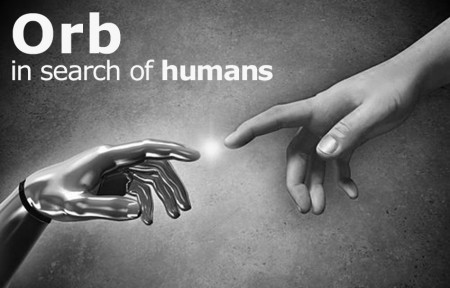
What if humans could overcome mortality? This question is at the core of Beirut-born, US-raised, writer and director Darine Hotait’s latest project. She is currently working on the short science fiction movie Orb, funded through a crowdfunding campaign which will end in only a few days.
After the short film, her plan is to make a full-length feature on the same topic, also filmed in Lebanon. Meanwhile, she is organising workshops for directors from all around the Middle East. The screenwriting labs are part of the activities of Cinephilia Productions, an independent film production house founded by Darine Hotait back in 2009 in order to support young and innovative filmmakers from the Middle East, Africa and South Asia. We talked to her about the upcoming movie.
What is the story of Orb?
The film takes place in Beirut in year 2050. It tells the story of a mother who loses her child, but is given the chance to bring him back to life. The only downside is that he would become immortal. Is she willing to have a child with a real body but with a robotised brain? The idea I explore in the film has to do with mortality versus immortality and how we look at that.
In Lebanon, for instance, there is the martyr, the militant and the innocent civilian. The culture of death is strongly emphasised in the experience of society. In Orb, death is treated as immortality. But the message of the film is not really political. It is too human to talk about the faux art of politics that Lebanon endures.
How did you get that idea?
I have written another science fiction script for a movie called Symphony of a Flood, also set in Lebanon, in 2065. I am now at the stage of finding a way to finance it, working with the producer Sabine Sidawi Hamdan from Orjouane Productions. It was during that project that I decided to test my ground with science fiction and make a short film. That’s how Orb came to life. That story is completely different from the full-length feature, but they tackle similar ideas. So far, I have been surprised by how well people have responded to the campaign. I am very happy because people never expected to see a science fiction film from Lebanon, showing Beirut in the future. I think that I am now on somehow safe grounds to make a feature film.
Why did you decide to start a crowdfunding campaign?
One of the main reasons is to test the local reception. With crowdfunding, you create a buzz before you finish a project, which gives you some confidence to make the project. I also think it was a way to fund the project faster – if I would have had to wait for funding or apply for grants the short film would have taken longer.
Can you give us more details about your full-length feature, Symphony of a Flood?
Both films will be filmed in Lebanon. I am looking to shoot Orb in august 2014, and the feature within a year and a half from that. Just like Orb, Symphony of a Flood also talks about immortality and artificial intelligence – how we can reach the ultimate human captivity through deceptive immortality.
Today, everybody is looking for perfection. We are becoming more and more exposed to the idea of perfection, of people who are trying to stop the aging of their bodies. If you go into the laboratories, you will see that we are beyond that,we are at a place where the human mind can be uploaded into a robot or computer system. Scientists are working on having it available to people by 2050. If you dig deep into the field of science, you will see that immortality is not very far away.
In my film, there are two kinds of people: the perfected ones and the brain dead ones. The perfected are the ones looking to become perfect; the brain deads are those with robotised brains. This is not very different from the world today. If you look at the streets of Beirut, you will see brain dead people walking. Living bodies with dead brains.
What is Cinephilia productions doing at the moment?
We are currently focusing on screenwriting. We have short film labs, which have been running since September 2012: selective labs where we choose eight to ten filmmakers who get to work on projects and develop their material. We then produce one film from each lab. We are currently working on one film in Beirut, one in Cairo and one in Dubai. This year, we also launched a lab for feature movies.
Your website says you like unusual films – what do you mean by unusual?
Genres that we really like, like fantasy or science fiction. We try to encourage such productions, but so far, we have not got any suggestions for those kinds of films. Unusual also means anything outside the box. Things we do not see everyday, twists in our visions. As directors, we should not only address political aspects but also talk about the human being and the personal self.


